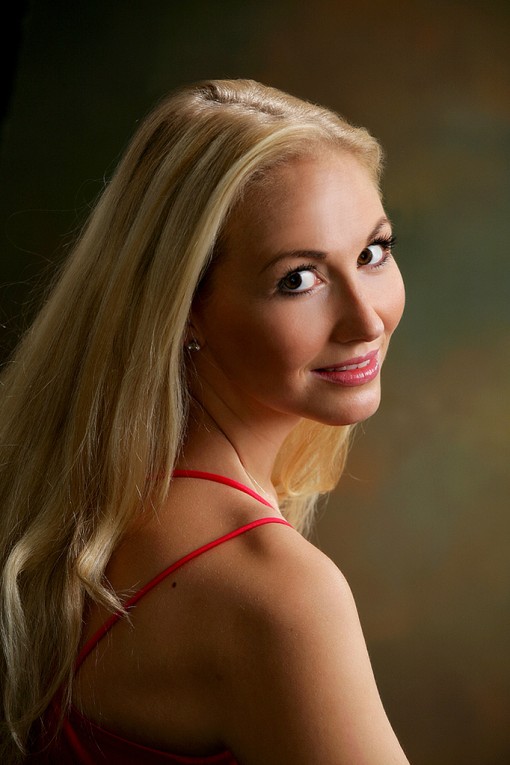Rough-hewn and under-rehearsed, troupe fails its mission with Handel’s early “Rodrigo”

Dísella Lárusdóttir sang the role of Esilena in operamission’s performance of Handel’s “Rodrigo” Tuesday night at the Gershwin Hotel.
Turn left at New York City’s Museum of Sex to find the bright red façade of the trendy Gershwin Hotel, where Jennifer Peterson’s operamission presented what was billed as the North American premiere of Handel’s Rodrigo Tuesday night. Written for an Italian audience and specific Italian singers, the composer’s second surviving opera bursts with musical imagination in a string of arias he would later pilfer and reuse throughout his long London theater career.
Scholars are unsure of the exact nature of the commission for this historical opera about the Visigoths in 8th century Spain, but the first performances, at Florence’s Teatro Cocomero in the fall of 1707 under Handel’s direction, were well received. Although a large musical fragment was recovered in 1983, the score still presents editorial challenges, and Peterson made well-informed choices.
The opera’s subtitle, “Vincer se stesso è la maggior vittoria” (To overcome oneself is the greater victory), refers to the eventual self-mastery of the adulterous villain Rodrigo, with the help of his long-suffering wife Esilena, and the alliance of Rodrigo’s discarded mistress Florinda with Evanco, son of the ruler Rodrigo had deposed. Florinda’s bellicose brother Giuliano, and Rodrigo’s minister Fernando are added to the confusing mix.
The playing space, a curtained-off section of the hotel’s lobby, with high ceilings and Persian carpets, is challenged by intrusive columns, but director Jeff Caldwell’s light touch provided variety and movement in the round without scenery, props or costumes. With the small period orchestra gathered around Peterson’s harpsichord and the audience crammed everywhere else, the atmosphere felt like a first reading in the composer’s own lodging, with the same excitement of friends and cognoscenti at hearing a new work.
Unfortunately, it sounded like a first reading as well, with countless musical mishaps, including cadenzas and da capo repeats taking everyone by surprise, in spite of Peterson’s excellent musicianship and obvious knowledge of the score. Things will no doubt improve over the two remaining performances, but the bassoon player rushed throughout, and except in the well-played dance-suite overture, bass lines were shapeless in the choppy old-fashioned manner.
Kudos to Peterson for including all the music but, perhaps in an effort to keep the show under three and one-half hours, recitative cadences were plowed through without punctuation, and Handel’s time-stopping slow movements never achieved grandeur or musical poise.
As the wronged queen Esilena, the excellent soprano Dísella Lárusdóttir suffered the most, with three potentially knock-out tragic adagios, especially the central Empio fato and Perche viva il caro sposo, with its rhapsodic, plunging cello line, taken too fast. Lárusdóttir needs more guidance with baroque style, and she was glued to the score in this performance, but her gorgeous, pointed sound and creamy middle voice are world-class.
Soprano Madeline Bender was impressive as the seduced and abandoned Florinda. Bender’s full, lyric sound and nice feel for Handel’s musical gestures and structure were on display in the vigorous Alle glorie, alle palme and the opening Pugneran con noi, better-known from its re-use in Rinaldo. As Giuliano, tenor John Carlo Pierce made the most of his robust, martial pieces, while countertenor Daniel Bubeck’s musical assurance and smooth, even coloratura made one lament the early demise of the general Fernando.
In soprano roles, two other countertenors were less accomplished. Nicholas Tamagna’s deft stage skills brought dramatic definition to the title role, but the high tessitura left him without variety of color or dynamics, and often sounded flat, especially in the intense, chromatic Sommi Dei. Even though he gets one of the best arias, Il dolce foco mio, Christopher Newcomer’s offhand musical manner, limp rhythms and reliance on the score made nonsense of the role of Evanco.
With two North American premieres under its belt (last year’s Almira was staged at the Gershwin Hotel), operamission has announced an intention to present all of Handel’s operas in order of their composition. Will someone please drop a pile of money on this spunky outfit so the orchestra can rehearse? Otherwise let’s be more accurate and call these “open readings” rather than finished performances.
Rodrigo runs through May 25th. operamission.org